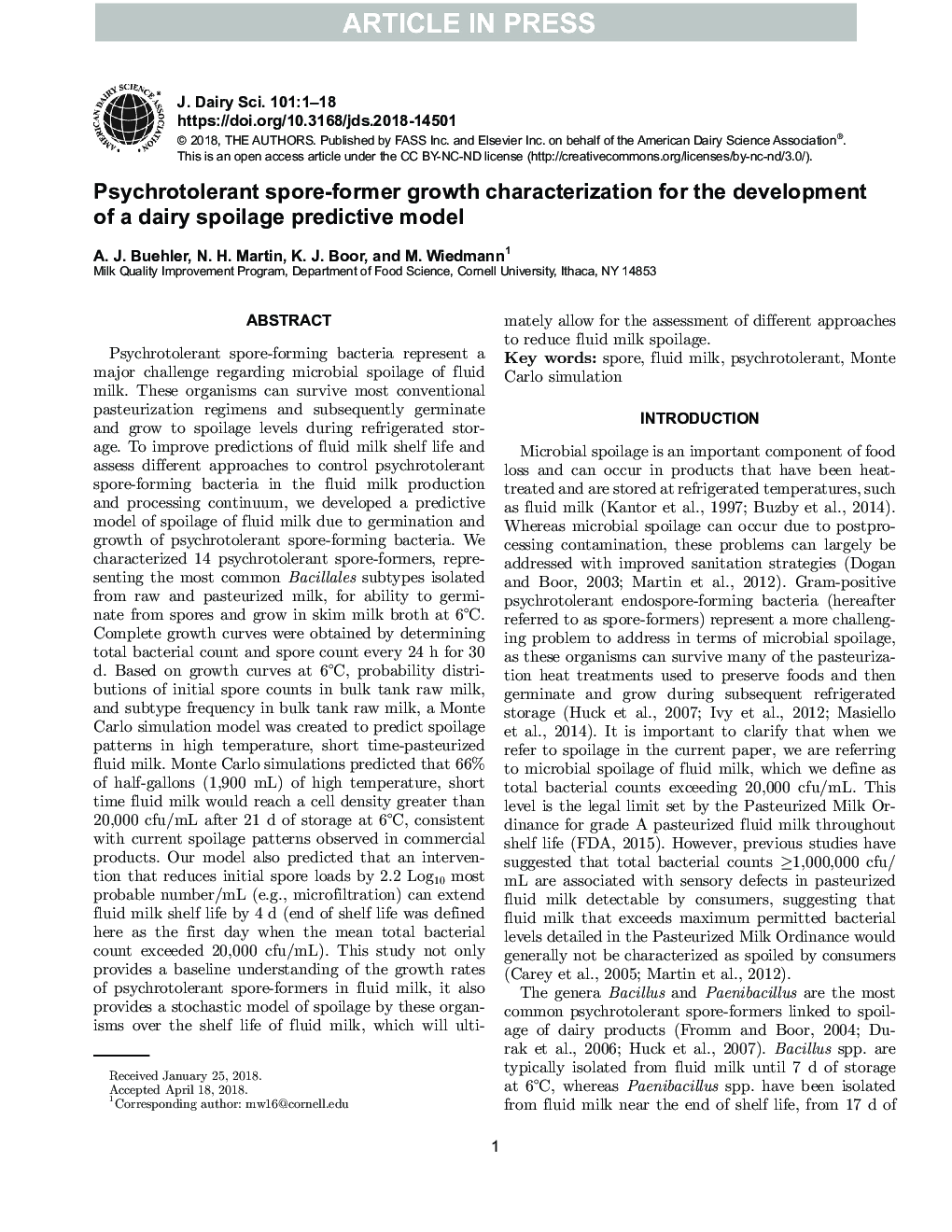| Article ID | Journal | Published Year | Pages | File Type |
|---|---|---|---|---|
| 8500866 | Journal of Dairy Science | 2018 | 18 Pages |
Abstract
Psychrotolerant spore-forming bacteria represent a major challenge regarding microbial spoilage of fluid milk. These organisms can survive most conventional pasteurization regimens and subsequently germinate and grow to spoilage levels during refrigerated storage. To improve predictions of fluid milk shelf life and assess different approaches to control psychrotolerant spore-forming bacteria in the fluid milk production and processing continuum, we developed a predictive model of spoilage of fluid milk due to germination and growth of psychrotolerant spore-forming bacteria. We characterized 14 psychrotolerant spore-formers, representing the most common Bacillales subtypes isolated from raw and pasteurized milk, for ability to germinate from spores and grow in skim milk broth at 6°C. Complete growth curves were obtained by determining total bacterial count and spore count every 24 h for 30 d. Based on growth curves at 6°C, probability distributions of initial spore counts in bulk tank raw milk, and subtype frequency in bulk tank raw milk, a Monte Carlo simulation model was created to predict spoilage patterns in high temperature, short time-pasteurized fluid milk. Monte Carlo simulations predicted that 66% of half-gallons (1,900 mL) of high temperature, short time fluid milk would reach a cell density greater than 20,000 cfu/mL after 21 d of storage at 6°C, consistent with current spoilage patterns observed in commercial products. Our model also predicted that an intervention that reduces initial spore loads by 2.2 Log10 most probable number/mL (e.g., microfiltration) can extend fluid milk shelf life by 4 d (end of shelf life was defined here as the first day when the mean total bacterial count exceeded 20,000 cfu/mL). This study not only provides a baseline understanding of the growth rates of psychrotolerant spore-formers in fluid milk, it also provides a stochastic model of spoilage by these organisms over the shelf life of fluid milk, which will ultimately allow for the assessment of different approaches to reduce fluid milk spoilage.
Related Topics
Life Sciences
Agricultural and Biological Sciences
Animal Science and Zoology
Authors
A.J. Buehler, N.H. Martin, K.J. Boor, M. Wiedmann,
